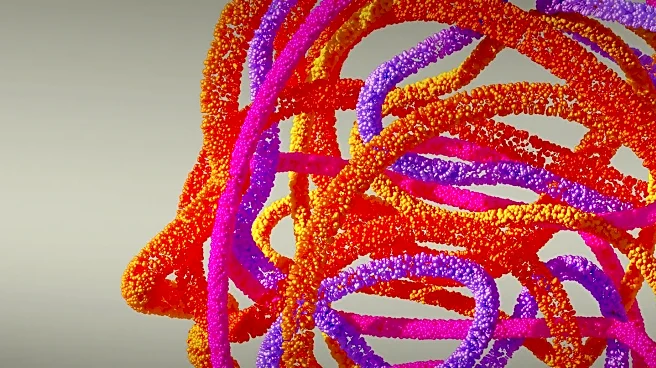What's Happening?
uniQure N.V., a gene therapy company, announced positive results from its Phase I/II study of AMT-130 for Huntington's disease treatment. The study met its primary endpoint, showing a statistically significant 75% slowing of disease progression as measured by the composite Unified Huntington's Disease Rating Scale (cUHDRS) at 36 months compared to a control group. The study also achieved a key secondary endpoint with a 60% slowing of disease progression measured by Total Functional Capacity (TFC). The treatment demonstrated favorable trends in motor and cognitive function tests, and was generally well-tolerated with a manageable safety profile.
Why It's Important?
The results from uniQure's study are significant as Huntington's disease currently lacks approved therapies to delay onset or slow progression. The promising data from AMT-130 offers hope to patients and families affected by this debilitating condition. The study's success underscores the potential of gene therapy to modify disease progression, potentially transforming the treatment landscape for Huntington's disease and other neurological disorders. The findings also support the efficacy of precision-delivered gene therapies, which could lead to new treatment approaches for severe diseases.
What's Next?
uniQure plans to submit a Biologics License Application (BLA) in the first quarter of 2026, aiming for a U.S. launch later that year, pending approval. The company is preparing for discussions with the FDA at a pre-BLA meeting expected later this year. AMT-130 has received Breakthrough Therapy and Regenerative Medicine Advanced Therapy designations from the FDA, which may expedite the approval process. The company continues to analyze data and conduct further studies to support the treatment's efficacy and safety.









